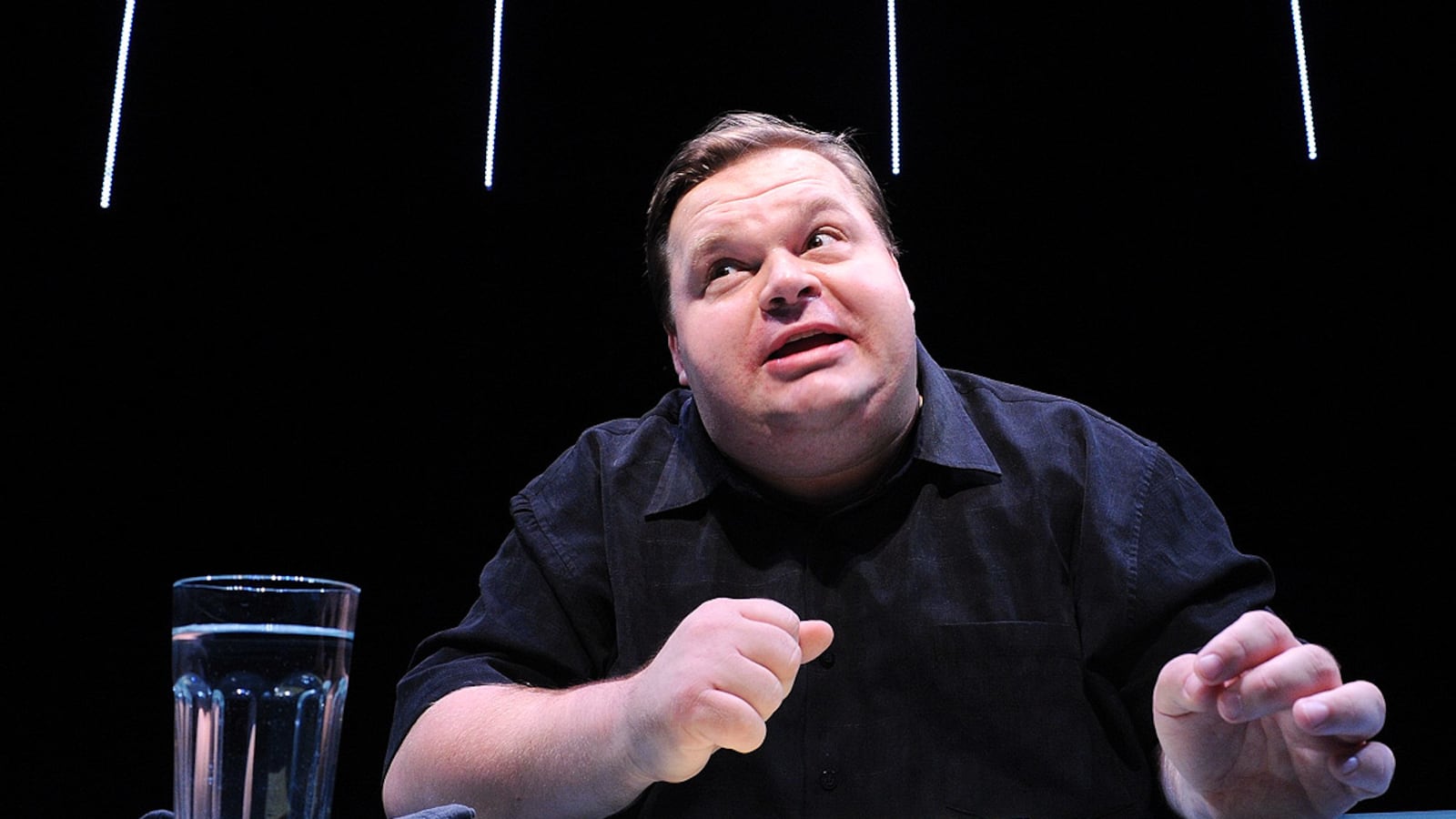Mike Daisey, a rising star in the theater world, was brought to his knees Friday after it turned out that much of his show, The Agony and The Ecstasy of Steve Jobs, was a work of fiction.
For six months, the show has been playing at the Public Theater, where it earned rave reviews from nearly every critic that counts, and was extended three times because of enormous ticket sales.
The piece is a monologue in which Daisey tells the story of going to visit Apple’s factories in China and discovers workers toiling in horrid conditions. The show helped bring public attention to labor practices abroad, and turned up the heat on an American company with a technology fanbase so religiously devoted, few dared suggest anything could possibly be wrong with it.
But it turns out that many of the stories he told were not exactly true—or that at the very least, much of what he described he did not apparently witness first-hand.
On Friday, This American Life, the popular radio show that had recently given an entire episode to Daisey, announced they’d discovered numerous problems with the monologist’s account of things.
For example, Daisey clamed to have met a man who’d lost part of his hand in a metal press while making the iPad, only to lose his job because he could no longer work at breakneck speed. Yet This American Life couldn’t find any independent confirmation of the meeting.

Daisey also claimed to have spoken with a 13-year-old girl outside the Foxconn factory in Shenzhen who alleged that lots of teenagers worked there, and that no one ever bothered to check their IDs. Yet a translator working with Daisey during his visit had no recollection of this conversation. The translator said that she’d been at Daisey’s side virtually the entire time he was there.
By Friday night, the Public Theater had taken the unusual step of contacting the entire board of trustees in an attempt to minimize the embarrassment.
The organization was measured in its response, saying that while Daisey is an artist whose work should not be held to the conventional standards of journalism, they “nevertheless … wish he had been more precise with us and our audience about what was and wasn’t his personal experience in the piece.”
To his friends, the whole episode was particularly disappointing because the broad strokes of his piece appear to be largely true: the conditions in these factories are terrible. Lots of people have died there. Others have been disfigured.
Last month, The New York Times ran a 5,500-word front-page article about the conditions endured by Chinese workers, and nothing in it deviated considerably from the version of things Daisey had been presenting for the last six months.
So why did Daisey choose to embellish so many things? Why not just stick to describing what he actually saw?
According to one friend, his messianic zeal took over.
“One of his weaknesses is his sanctimoniousness,” says this person, who wished to remain anonymous. “That’s true with most artists. Most playwrights don’t like to see other people’s plays, most writers are not kind of about other people’s writing. Mike has made himself an easy target because he can’t keep his mouth shut. He got really excited about the press. He didn’t think what the consequences would be of writing an op-ed piece in The New York Times. He didn’t think about what it would mean to be quoted constantly about Apple. He just kept going.”
Furthermore, Daisey’s theater pieces are on some level agitprop, where there’s almost always a component of manipulating facts to sell a particular point of view. In the latest episode of This American Life, which is devoted to the controversy, he tries to put a brighter spin on this when asked if he considered the story about meeting poisoned workers a lie.
“I wouldn’t express it that way," Daisey said. "I would say that I wanted to tell a story that captured the totality of my trip, and so when I was building the scene of that meeting, I wanted to have the voice of this thing that had been happening, that everyone had been talking about.”
“Does it matter if these things that you describe in the play didn’t happen?” Glass asked.
“Yeah, I think the truth always matters," Daisey responded. "I think the truth is tremendously important. I don’t live in a subjective universe where everything is up for grabs. I really do believe that stories should be subordinate to the truth.”
This is a question about which Daisey is clearly ambivalent. In 2006, he did a monologue called "Truth," in which he discussed fabulists like JT LeRoy, Stephen Glass, and James Frey. One thing he admits to the audience during the course of the show? A shared tendency with his subjects toward embellishing things.






